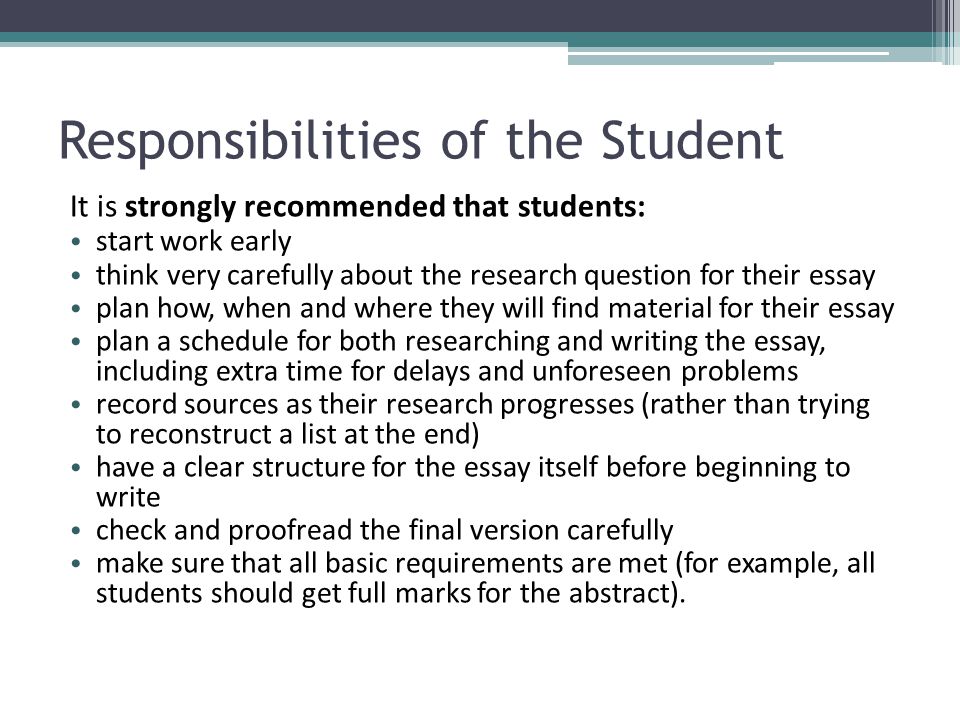Throughout the years, I have seen students struggle to write their essays. This article will discuss the characteristics of an effective student and offer tips to help students overcome their writing challenges. Then, I will provide my tips for students to follow my example. By following my tips, students will be able to produce quality essays and succeed in school. Let’s get started! Here are some helpful ideas:
Characteristics of a successful student
A successful student should be able to study effectively. It is hard to acquire knowledge without hard work and dedication, so successful students learn from their mistakes and seek help from others to improve their skills. They find a quiet place and study at the right time. They use the time they have to do their college work and utilize the resources they have access to in class. Lastly, a successful student should be able to manage their time well.
A responsible student is also responsible and reliable. This trait indicates that a student is capable of handling any work assigned to them. They complete their assignments on time and with diligence. They are always on time for class. They engage in meaningful conversation outside of class and seek extra credit. This will set them apart from their peers. They are also responsible and willing to take initiative. It is a good quality to possess. Students who are hard-working will be successful in school and life.
A successful student keeps his or her schedule in order. A successful student does not lose track of important dates and deadlines. He or she is able to prioritize tasks and make them easier to complete. In addition, he or she is organised. Study materials are easily accessible during class sessions. To further help students, they can assign different study materials for different subjects. It will help them prepare more efficiently for tests and exams.
Impact of feedback on student’s performance
In recent years, researchers have been questioning the cause-and-effect relationship between feedback and learning. Some argue that feedback is not always effective, and that students often fail to use it. Other researchers claim that feedback doesn’t change student attitudes; rather, it can only have a limited impact. For example, students who received feedback via written form did not change their goals, but those who received feedback through face-to-face or audio means did.
Also Read: Examples of Attention Grabbers
In one study, students who received information about their relative performance tended to underestimate their performance. This was especially true of students at the beginning of their second year. These students were often uninformed and inaccurate about their relative standing in the grade distribution. They underestimated their relative ranking by about eighteen percentiles. This effect was greater in women and students with low high school grades. In addition, students who received feedback about their relative performance were less likely to pass exams than their peers.
One way to make feedback more effective is to provide immediate, direct feedback. Providing immediate feedback prevents students from adopting poor habits when learning difficult material. Similarly, feedback delivered at a later time allows students to learn from their mistakes and self-correct. It is important to note that immediate feedback is more effective than delayed feedback, and students who are given immediate feedback are more likely to retain the information. However, delayed feedback does have some disadvantages.
Ways to provide feedback to students
Teachers can provide feedback to students by marking the rubric and including targeted comments. Students can see where they made mistakes and how they can improve. It is important to note that at least one comment should be positive, as students respond better to this type of feedback. If the teacher corrects every single error, they are shutting down the student and reducing their efficacy. However, three targeted comments are effective.
When providing feedback, it is crucial to be specific. Be clear about what you liked and thought was missing. Also, be specific in your feedback, asking questions to clarify meaning, resources, or the writer’s intention. Make sure to avoid making the writer sound like you – instead, make note of bad words and better ones. Keeping the writer’s identity and voice in mind when giving feedback is essential.
When providing feedback to students when writing an essay, teachers should define the purpose of the assignment and the qualities of a good essay. If students don’t understand why they should write it, the feedback will be treated as additional teacher directions. For example, a student should know the criteria for a successful descriptive paragraph. Students should learn to use descriptive words and help the reader experience the object. Similarly, a teacher can lead a student in editing their work. However, it should be limited to three or four pieces of advice, such as capitalization or comma splices.
